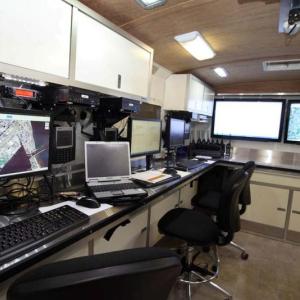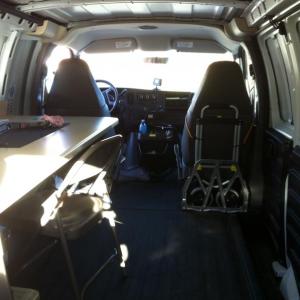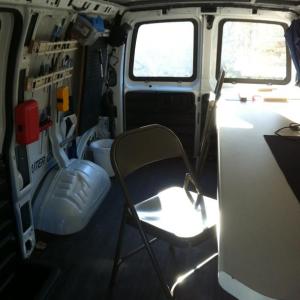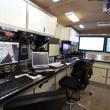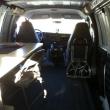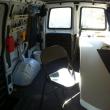Rockport woman works to raise $100K toward mobile forensic lab
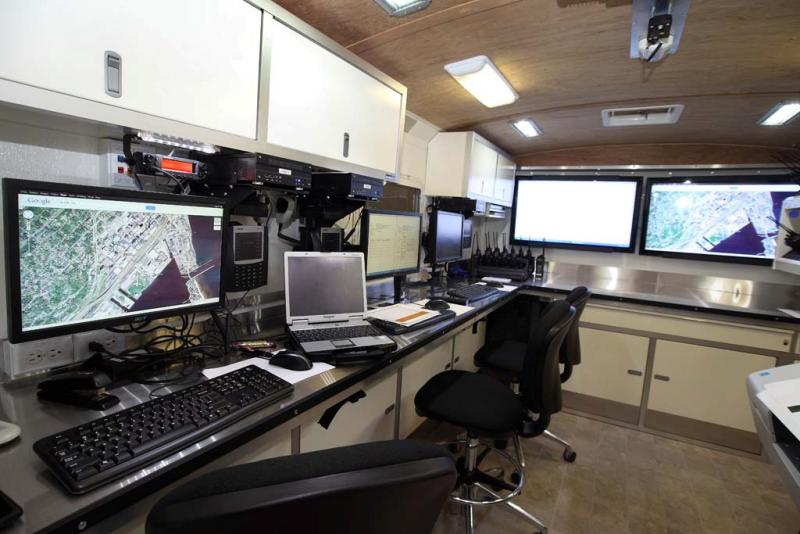 Interior of what a fully-equipped forensic mobile unit looks like. (Courtesy Lt. Glenn Lang)
Interior of what a fully-equipped forensic mobile unit looks like. (Courtesy Lt. Glenn Lang)
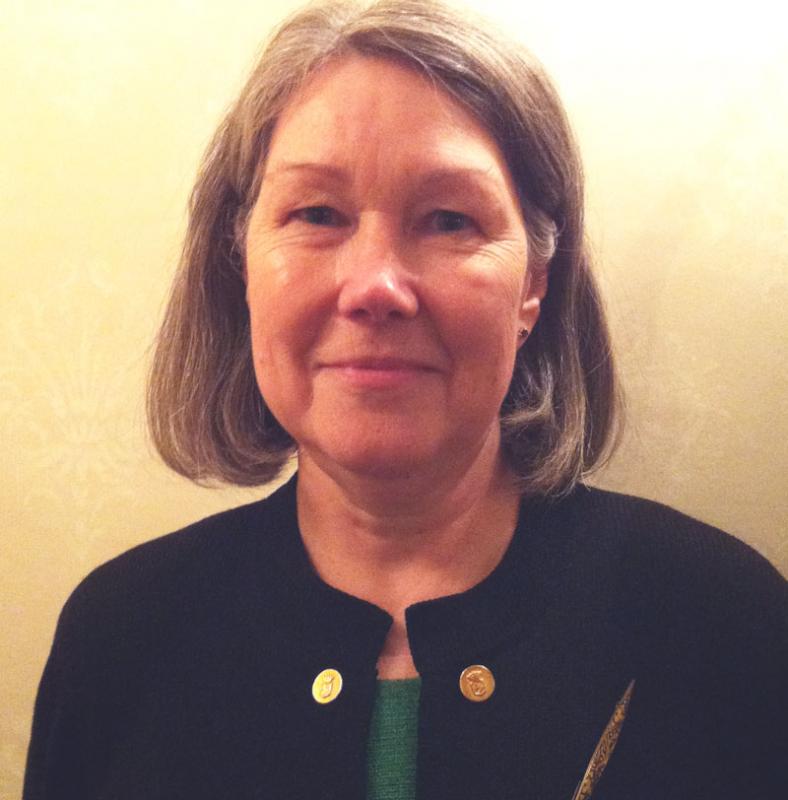 Mainely Girls Executive Director Mary Orear is spearheading an effort to raise funds for a new forensic mobile unit. (Courtesy Mary Orear)
Mainely Girls Executive Director Mary Orear is spearheading an effort to raise funds for a new forensic mobile unit. (Courtesy Mary Orear)
 Interior of one of the CCU’s converted cargo vans. (Courtesy Maine Computer Crimes Unit)
Interior of one of the CCU’s converted cargo vans. (Courtesy Maine Computer Crimes Unit)
 More space is needed for multiple examiners to work a single case. (Courtesy Maine Computer Crimes Unit)
More space is needed for multiple examiners to work a single case. (Courtesy Maine Computer Crimes Unit)
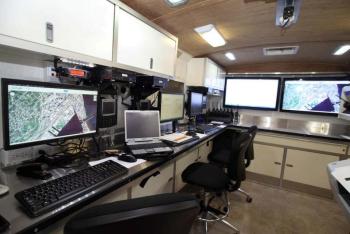 Interior of what a fully-equipped forensic mobile unit looks like. (Courtesy Lt. Glenn Lang)
Interior of what a fully-equipped forensic mobile unit looks like. (Courtesy Lt. Glenn Lang)
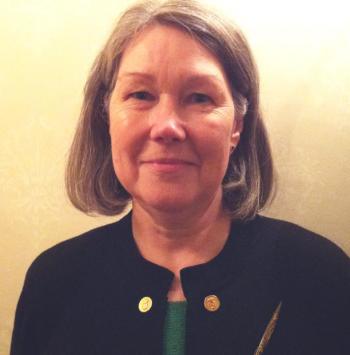 Mainely Girls Executive Director Mary Orear is spearheading an effort to raise funds for a new forensic mobile unit. (Courtesy Mary Orear)
Mainely Girls Executive Director Mary Orear is spearheading an effort to raise funds for a new forensic mobile unit. (Courtesy Mary Orear)
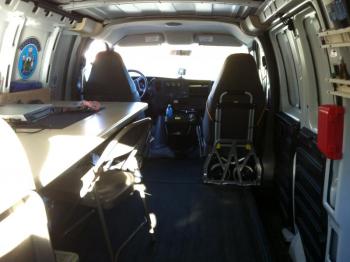 Interior of one of the CCU’s converted cargo vans. (Courtesy Maine Computer Crimes Unit)
Interior of one of the CCU’s converted cargo vans. (Courtesy Maine Computer Crimes Unit)
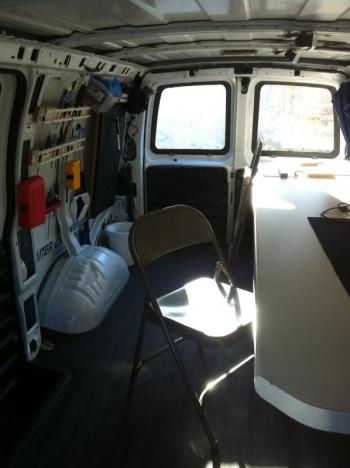 More space is needed for multiple examiners to work a single case. (Courtesy Maine Computer Crimes Unit)
More space is needed for multiple examiners to work a single case. (Courtesy Maine Computer Crimes Unit)
Much like the LifeFlight of Maine helicopters that service every area of Maine, a fully equipped forensic van is needed to work all corners of the pine tree state. The inadequacy of the retrofitted vans are hindering the CCU from being as efficient as they could be in identifying and arresting those involved in the burgeoning crime of producing, selling and/or possessing child pornography in Maine.
Most people don’t realize it takes an inordinate amount of time and effort for forensics team to make correlations between someone’s actions and seized digital devices, which contributes to the backlog. If the CCU can get a confession at the moment of the device seizure, it takes a tenth of the time to complete the forensic examination. In some cases, that can lead to an immediate arrest.
“Our best chance to get any admissions out of these guys and to solve these cases is right on the scene,” said Lang. “If we’re forced to wait a week or a month after we confront someone, the chances of getting a confession out of [them] is close to zero.”
Asked if the Maine child pornography problem is worse than other states, he said he didn’t have any comparable data.
“It’s a national and worldwide trend,” he said. “But it’s always a percentage of the population who does this. If you have more people in that area, you have more problems in that area.”
The forensic mobile unit is also used to investigate the sex slavery trade, as well as under-age sexting, although these cases aren’t as prevalent as child pornography. “It goes widely under-reported in Maine,” said Lang. “When things go critical, we hear about them.”
Orear and Mainely Girls have been committed to this issue for the past year and even managed to raise nearly $10,000 for the forensic mobile unit before receiving the official go-ahead. Lang and the CCU are fully on board with her fundraising efforts.
“I think it’s the helplessness of these children who can’t in any way defend themselves that is the ultimate definition of a victim,” said Orear. “The older ones — 13, 14, 15 years — it’s hard enough for them to protect themselves against this, but child pornographers routinely target toddlers and infants, children who don’t even stand a chance of protecting themselves. That’s really what grabbed me. It is a crime that has really developed over the last 25 years. As a society, it is our responsibility to protect children.”
To date, Mainely Girls’ efforts have generated more than $25,000 in donations and the nonprofit is currently appealing to individuals, foundations and corporations. “Interestingly, many male donors have really stepped up their support around this,” said Orear. “It’s really gratifying to see.”
To find out more about how you can help or contribute, contact Orear directly at mainelygirls2@gmail.com.
To report any type of online child exploitation, contact National Center for Missing and Exploited Children or contact Lt. Glenn Lang directly at glang@mcctf.org.
Kay Stephens can be reached at news@penbaypilot.com
Event Date
Address
United States

